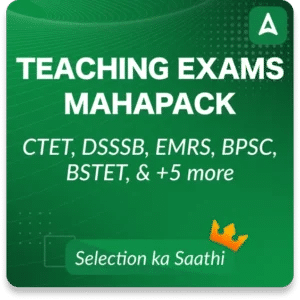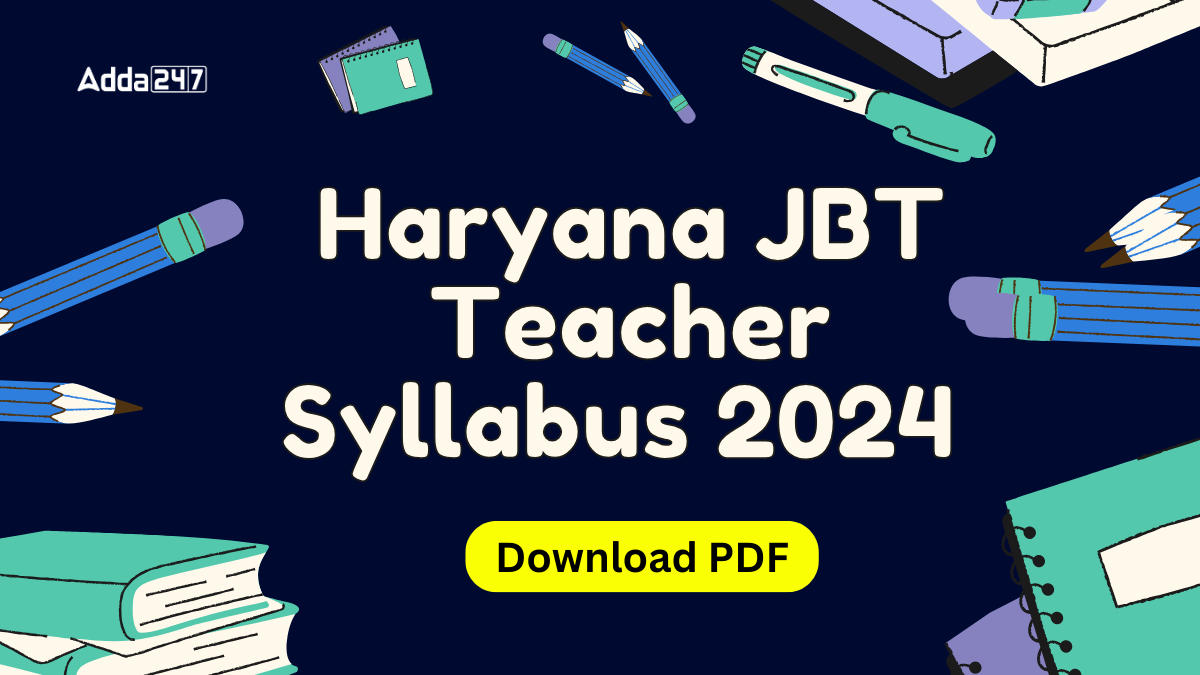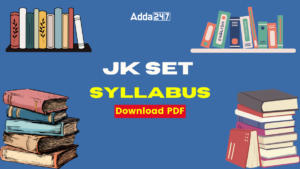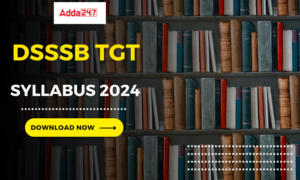The Haryana Staff Selection Commission has published the Haryana JBT Teacher Syllabus 2025 on its official website. To prepare efficiently for the Haryana JBT Exam 2025, candidates should thoroughly understand the complete syllabus and exam pattern. This article offers a comprehensive guide to the Haryana JBT Syllabus and Exam Pattern for 2025.
Haryana JBT Teacher Syllabus 2025
The Haryana JBT Syllabus for 2025 is designed to assess candidates on important subjects relevant to aspiring Junior Basic Teachers (Primary Teachers). The syllabus for the Haryana JBT 2025 Exam covers topics such as Child Development and Pedagogy, Hindi, English, Haryana General Knowledge and Awareness, General Intelligence and Reasoning Ability, Mathematics, and Environmental Studies.
| Haryana JBT Teacher Syllabus 2025 |
| Name of Recruitment |
Haryana JBT Teacher Recruitment 2024 |
| Conducting Body |
Haryana Staff Selection Commission |
| Cadre |
Mewat Cadre |
| Mode of Application |
Online |
| Exam Date |
28 September 2024 |
| Number of Vacancies |
1456 Vacancies |
| Selection Process |
Written Test, DV, Medical Exam |
| Official Website |
hssc.gov.in |
Haryana JBT Exam Pattern 2025
The Haryana license plate exam comprises 100 questions, each carrying 0.95 marks, totalling 95 marks. There is no penalty for incorrect answers, but 0.95 marks are deducted for each unanswered question. The exam, conducted offline via the OMR system, offers five answer options per question and is available in both English and Hindi. Candidates have 105 minutes to complete the exam, with an additional 5 minutes allocated for marking the fifth option.
| Feature |
Details |
| Total Questions |
100 |
| Marks per Question |
0.95 |
| Total Marks |
95 |
| Negative Marking |
No negative marking for wrong answers |
| Penalty for Unattempted |
0.95 marks deducted per unattempted question |
| Options per Question |
5 |
| Language of Question Paper |
Bilingual (English & Hindi) |
| Exam Mode |
Offline (OMR-based) |
| Total Duration |
105 minutes (including an extra 5 minutes for marking the fifth option) |
Haryana JBT Marks Distribution 2025
The Haryana JBT Teacher Exam Pattern consists of several key sections: Child Development and Pedagogy (20 marks), Hindi (10 marks), English (10 marks), Haryana General Knowledge and Awareness (20 marks), General Intelligence and Reasoning Ability (10 marks), Mathematics (20 marks), and Environmental Studies (10 marks). This structure provides a comprehensive evaluation of candidates by addressing essential subjects and assessing both their subject knowledge and teaching abilities.
| Haryana JBT Teacher Exam Pattern |
| Section |
Subject |
Marks |
| (i) |
Child Development and Pedagogy |
20 |
| (ii) |
Languages (HINDI) |
10 |
| (iii) |
Languages (ENGLISH) |
10 |
| (iv) |
Haryana G.K and Awareness |
20 |
| (v) |
General Intelligence & Reasoning Ability |
10 |
| (vi) |
Mathematics |
20 |
| (vii) |
Environmental Studies |
10 |
Haryana JBT Syllabus 2025 Subject Wise
The Haryana JBT Teacher Syllabus 2025 covers several essential areas, starting with Child Development and Pedagogy, which evaluates understanding of child growth principles and teaching methodologies. It also emphasizes language proficiency in Hindi and English to ensure candidates possess strong communication skills.
Moreover, the syllabus includes Haryana General Knowledge and Awareness, focusing on the state’s history, culture, and current affairs. General Intelligence and Reasoning Ability assess logical thinking and problem-solving skills, while Mathematics measures numerical aptitude. Lastly, Environmental Studies is included to evaluate awareness of environmental issues and sustainability, providing a comprehensive foundation for a successful teaching career.
| Haryana JBT Syllabus 2025 Subject Wise |
| Subject |
Syllabus |
| Child Development and Pedagogy |
- Concept of Development: Relationship with learning, principles of child development, and the influence of heredity and environment.
- Socialisation Processes: Role of teachers, parents, and peers in children’s social world.
- Theoretical Perspectives: Piaget, Kohlberg, and Vygotsky’s constructs and critical perspectives.
- Educational Concepts: Child-centred and progressive education, multidimensional intelligence, and the critical perspective of intelligence.
- Gender Issues: Gender as a social construct, roles, biases, and their impact on educational practices.
- Individual Differences: Understanding diversity based on language, caste, gender, community, religion, etc.
- Assessment: Distinction between assessment for learning and assessment of learning, school-based assessment.
- Continuous & Comprehensive Evaluation: Perspectives and practices.
- Formulating Questions: For assessing readiness levels, enhancing learning, critical thinking, and learner achievement.
- Inclusive Education: Understanding and addressing the needs of children with special needs, including those from disadvantaged backgrounds.
- Learning and Pedagogy: How children think and learn, why some children fail to achieve success, and basic teaching and learning processes.
- Cognitive and Emotional Factors: How cognition, emotions, and motivation affect learning.
- Learning as a Social Activity: The social context of learning and alternative conceptions of learning, including understanding children’s errors as learning steps.
|
| Hindi |
- Language Comprehension: Involves reading unseen passages (one prose or drama and one poem) and answering questions on comprehension, inference, grammar, and verbal ability. The prose may be literary, scientific, narrative, or discursive.
- Pedagogy of Language Development: Covers principles of language learning and teaching, the role of listening and speaking, the use of language as a tool, and the impact of grammar on communication. It also addresses challenges in teaching language in diverse classrooms, including language difficulties, errors, and disorders. Additionally, it evaluates language skills (speaking, listening, reading, writing) and includes teaching-learning materials such as textbooks, multimedia resources, multilingual classroom resources, and remedial teaching.
|
| English |
- Language Comprehension: Two unseen prose passages (discursive, literary, narrative, or scientific) with questions on comprehension, grammar, and verbal ability.
- Pedagogy of Language Development: Includes learning and acquisition principles, the role of listening and speaking, the function of language as a tool, and the impact of grammar on communication. It also addresses challenges in teaching diverse classrooms, including language difficulties, errors, and disorders, and evaluates language skills in speaking, listening, reading, and writing.
- Teaching-Learning Materials: Covers textbooks, multimedia resources, multilingual classroom materials, and remedial teaching.
|
| Haryana G.K. and Awareness |
- Haryana-related history, current affairs, literature, Geography, Civics, Environment, Culture, art, traditions, and welfare schemes of the Haryana Government.
|
| General Intelligence & Reasoning Ability |
- Analogies: Semantic, symbolic/number, figural
- Classification: Semantic, symbolic/number, figural
- Series: Semantic, number, figural
- Problem Solving: Word building, coding and decoding
- Operations: Numerical and symbolic
- Spatial Skills: Space orientation, space visualisation, pattern folding and completion
- Reasoning: Arithmetical, syllogistic, statement conclusions
- Other Areas: Visual memory, observation, Venn diagrams, indexing, address and date/city matching, embedded figures
- Critical Skills: Critical thinking, emotional intelligence, social intelligence
|
| Mathematics |
- Mathematics Content: Geometry, shapes, spatial understanding of Solids, numbers, addition, subtraction, Multiplication, division, measurement (weight, time, volume), Data handling, patterns, and money.
- Pedagogical Issues: Nature of mathematics and logical thinking, Understanding children’s reasoning and learning strategies, Role of mathematics in the curriculum, Language of mathematics and community involvement, Evaluation methods (formal and informal), Teaching challenges, error analysis, diagnostic, and remedial teaching
|
| Environmental Studies |
- Family and Friends: Relationships, Work and Play, Animals, Plants.Food, Shelter, Water, Travel, Things We Make and Do.
- Pedagogical Issues: Concept and scope of EVS, Significance of EVS, integrated EVS, Environmental Studies & Environmental Education, Learning Principles, Scope & relation to Science & Social Science, Approaches of presenting concepts, Activities, Experimentation/Practical Work, Discussion, CCE, Teaching material/Aids, Problems.
|
Haryana JBT Syllabus 2025 PDF Download
Candidates can download the Haryana JBT 2025 syllabus in PDF format from official sources. This document outlines all the exam subjects, including Child Development and Pedagogy, Hindi, English, Haryana General Knowledge, General Intelligence and Reasoning Ability, Mathematics, and Environmental Studies. It is a thorough and user-friendly study guide.
Haryana JBT Syllabus 2024 PDF Download

Sharing is caring!




 JKSET Syllabus and Exam Pattern 2025, Do...
JKSET Syllabus and Exam Pattern 2025, Do...
 HPSC Assistant Professor Syllabus 2025 a...
HPSC Assistant Professor Syllabus 2025 a...
 DSSSB TGT Syllabus & Exam Pattern 20...
DSSSB TGT Syllabus & Exam Pattern 20...




